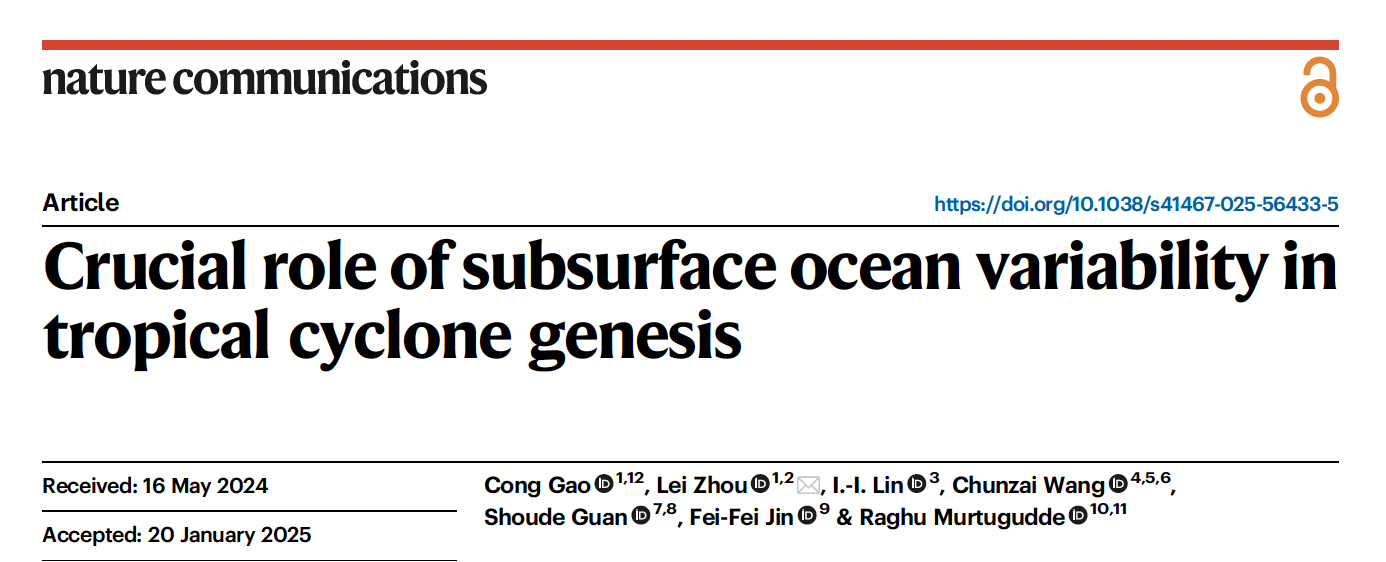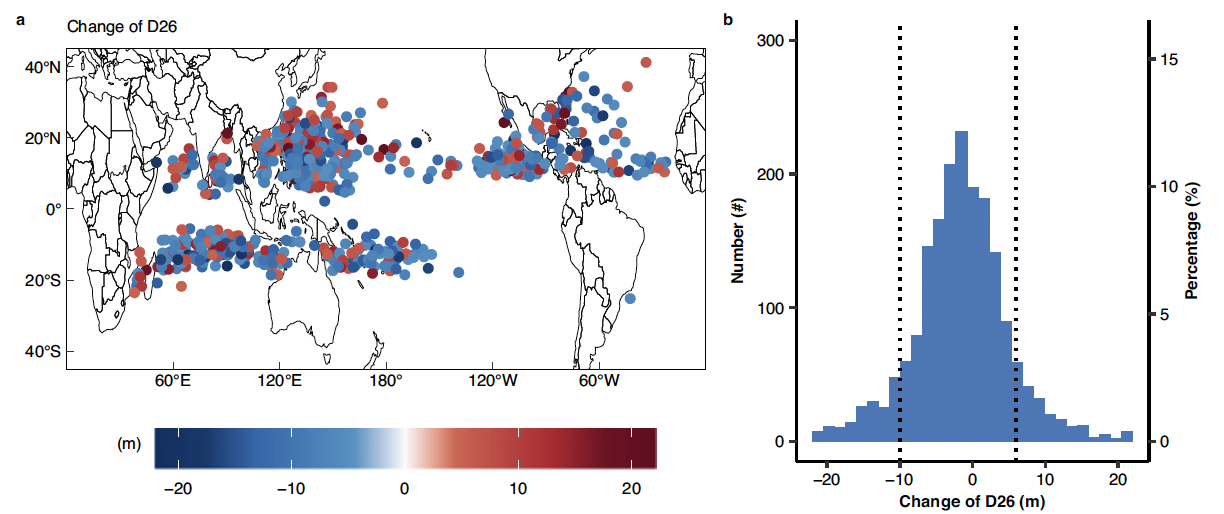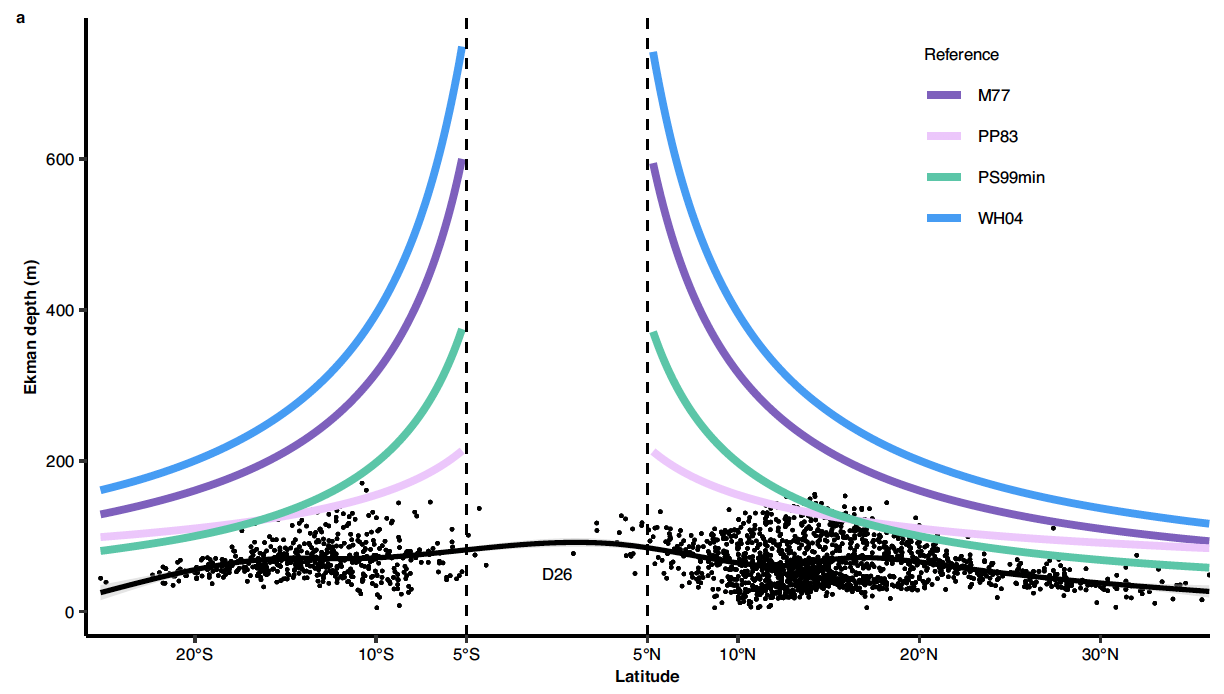Dr. Cong Gao, a Ph.D. graduate from the School of Oceanography at Shanghai Jiao Tong University, recently published a research paper in Nature Communications titled “Crucial Role of Subsurface Ocean Variability in Tropical Cyclone Genesis.” This groundbreaking study reveals the significant influence of subsurface ocean variability on tropical cyclone genesis and elucidates the underlying physical mechanisms. The research offers a novel perspective on addressing this longstanding scientific question and holds substantial practical implications for disaster prevention and mitigation efforts related to tropical cyclones.

As one of the most destructive natural disasters globally, tropical cyclones have long been a focal point of scientific inquiry. While previous studies have extensively examined the roles of atmospheric conditions and sea surface temperature in TC genesis, the influence of the subsurface ocean has remained insufficiently understood. This study challenges conventional frameworks and assumptions by demonstrating that subsurface ocean variability plays a pivotal role in the genesis of tropical cyclones.

Through a systematic analysis of 2,032 TC genesis events from 1998 to 2022, the research team discovered that pre-genesis wind stress and wind stress curl significantly perturb subsurface ocean heat content, leading to fluctuations in the depth of the 26°C isotherm (D26) by several tens of meters. These variations in D26 directly affect sea surface temperature, thereby modulating the environmental conditions necessary for tropical cyclone genesis.
Further investigation revealed that pre-genesis strong wind fields induce vertical heat transport in the subsurface ocean through vertical mixing and Ekman pumping. This finding challenges the traditional “weak wind hypothesis,” demonstrating that even during the early stages of TC genesis, wind fields possess sufficient capacity to substantially alter the ocean’s internal structure, thereby exerting a crucial influence on TC genesis.

The question of TC genesis is not only a fundamental scientific challenge but also closely tied to disaster prevention and risk management. By elucidating the critical role of subsurface ocean variability in TC genesis, this study provides a robust scientific foundation for improving TC genesis models and enhancing forecast accuracy. Additionally, the research underscores the necessity of accounting for subsurface ocean variability in the context of climate change to effectively address the increasing complexity and variability of future TC risks.
Dr. Cong Gao, the first author of the paper, is currently a postdoctoral researcher at Princeton University. The corresponding author is Professor Lei Zhou, and the School of Oceanography at Shanghai Jiao Tong University serves as the first institution. Co-authors include Professor I-I Lin from National Taiwan University, Professor Chunzai Wang from the South China Sea Institute of Oceanology, Chinese Academy of Sciences, Professor Shoude Guan from Ocean University of China, Professor Fei-Fei Jin from the University of Hawaii, and Professor Raghu Murtugudde from the University of Maryland.
